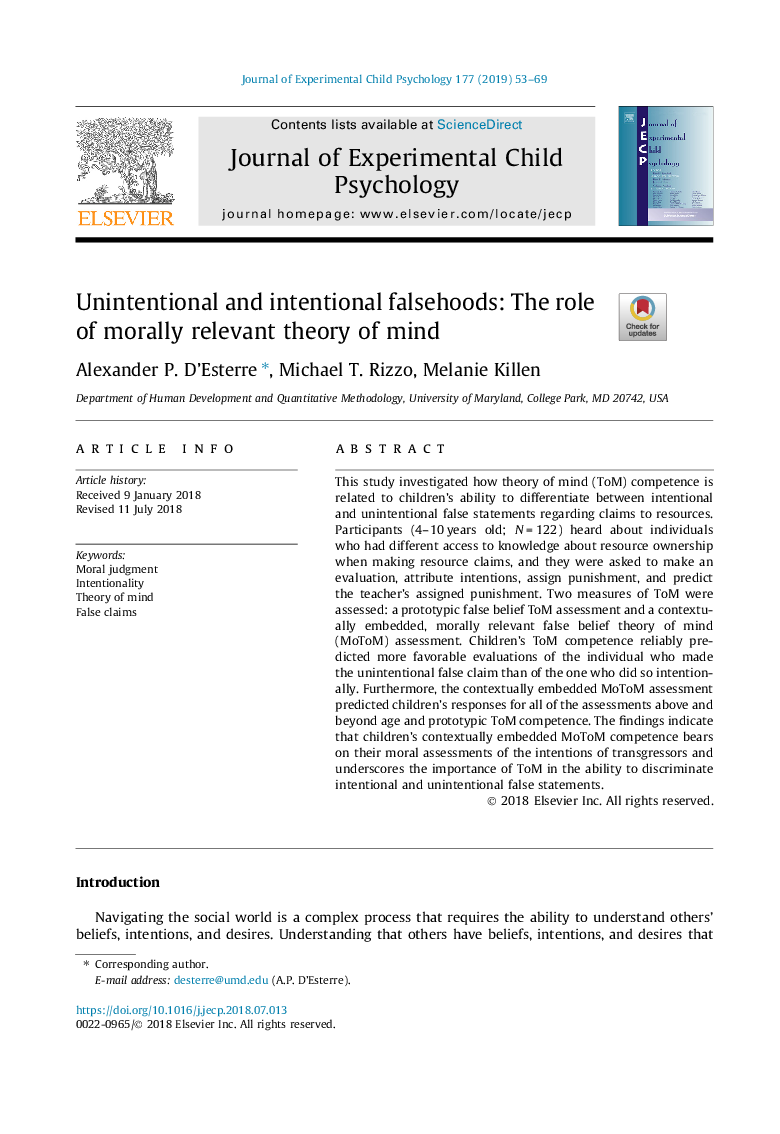| Article ID | Journal | Published Year | Pages | File Type |
|---|---|---|---|---|
| 8954512 | Journal of Experimental Child Psychology | 2019 | 17 Pages |
Abstract
This study investigated how theory of mind (ToM) competence is related to children's ability to differentiate between intentional and unintentional false statements regarding claims to resources. Participants (4-10â¯years old; Nâ¯=â¯122) heard about individuals who had different access to knowledge about resource ownership when making resource claims, and they were asked to make an evaluation, attribute intentions, assign punishment, and predict the teacher's assigned punishment. Two measures of ToM were assessed: a prototypic false belief ToM assessment and a contextually embedded, morally relevant false belief theory of mind (MoToM) assessment. Children's ToM competence reliably predicted more favorable evaluations of the individual who made the unintentional false claim than of the one who did so intentionally. Furthermore, the contextually embedded MoToM assessment predicted children's responses for all of the assessments above and beyond age and prototypic ToM competence. The findings indicate that children's contextually embedded MoToM competence bears on their moral assessments of the intentions of transgressors and underscores the importance of ToM in the ability to discriminate intentional and unintentional false statements.
Related Topics
Social Sciences and Humanities
Psychology
Developmental and Educational Psychology
Authors
Alexander P. D'Esterre, Michael T. Rizzo, Melanie Killen,
